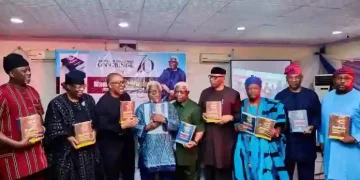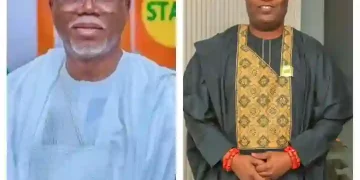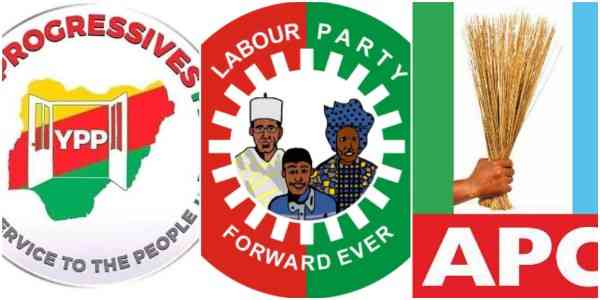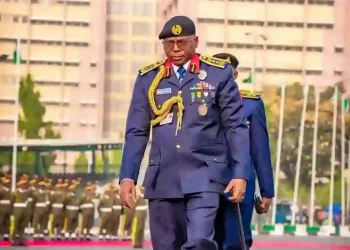The recent collapse of the Labour Party’s structures in parts of Kaduna State into the Young Progressives Party (YPP) has signaled more than a local political shift. It mirrors a broader pattern of movement and recalibration across Nigeria’s political landscape as the country edges toward the 2027 general elections. Beneath the surface of these defections lies a deeper story about the health of Nigeria’s democracy, the fragility of opposition politics, and the enduring pull of power in a system still defined more by access than ideology.
Few political seasons in Nigeria arrive without the ritual of defections, yet the current wave appears to carry heavier implications. The realignments taking shape in the North-West, especially in Kaduna, reveal the early signs of a scramble for relevance ahead of a high-stakes national contest. For smaller parties such as the Labour Party and YPP, these mergers are not just administrative shifts—they are survival strategies in a climate where the cost of staying independent can mean political extinction.
The underlying message from the ruling All Progressives Congress (APC) has been unmistakable: consolidation. Through quiet negotiations and strategic persuasion, the party is drawing in smaller factions and absorbing influential politicians who once served as vocal critics. Each defection serves as a symbolic endorsement of strength, reinforcing the perception that the APC’s national machinery remains unmatched in reach and resources. The optics are powerful—especially in regions where the opposition had hoped to consolidate grassroots momentum after the 2023 elections.
For the opposition, the mood is different—fragmented and uncertain. Within the Labour Party, internal fractures have exposed the gap between its 2023 electoral surge and the organizational depth required to sustain a nationwide movement. Many of its local leaders, once energized by a sense of moral and generational change, now find themselves isolated, underfunded, and disillusioned. Their defection to other parties is not necessarily a betrayal of ideals, but a reflection of Nigeria’s enduring political reality: without structure, even conviction struggles to survive.
Across the political spectrum, ideology has rarely been the defining factor in party allegiance. Nigerian politics has long been dominated by pragmatism—the pursuit of proximity to power. As one analyst recently observed, defections in Nigeria are not acts of conscience but calculations of opportunity. The question, then, is not whether politicians believe in their new parties, but whether they believe their new affiliations will deliver access to power, contracts, and influence.
The collapse of local party structures into others, particularly in Kaduna, points to a trend of regional consolidation that could reshape future contests. Kaduna has historically mirrored national sentiment: diverse, politically active, and sensitive to shifts in ethnic and religious balance. If its Labour Party machinery weakens significantly before 2027, it may narrow the field for opposition gains in the North-West—one of Nigeria’s most politically decisive regions.
Political observers are increasingly wary that the current wave of defections could usher in a new era of one-party dominance. The APC’s expanding reach, coupled with the opposition’s internal chaos, risks eroding the competitiveness that keeps Nigeria’s democracy alive. When power becomes too concentrated, accountability suffers. The electorate, already skeptical of political promises, may find itself with fewer real choices. The stakes, therefore, extend beyond the fortunes of individual politicians—they touch on the very integrity of Nigeria’s democratic contest.
Amid these shifts, what remains striking is the absence of ideological debate in Nigeria’s political realignments. Defectors rarely cite policy disagreements or new visions for governance. Instead, their decisions are justified through personal grievances, marginalization claims, or vague appeals to “better alignment.” The electorate is left to decode a theatre of movement without meaning—where the drama of defections often overshadows substantive engagement with governance.
State-level politics will likely feel the immediate impact. As defections gather pace, state governments could witness reshuffled patronage systems, realigned local councils, and new centers of influence. Governors seeking re-election or national relevance will court defectors to widen their base, while those losing allies may face early signs of internal rebellion. The pattern is cyclical—alliances built for expediency often crumble once electoral ambitions collide.
Yet, even within this flux, opportunity exists. Political realignments, when driven by reform rather than desperation, can rejuvenate democratic participation. Smaller parties merging to strengthen representation could, in theory, provide more credible alternatives to dominant forces. The challenge lies in ensuring that these mergers do not merely reproduce old habits under new banners.
For Nigeria‘s democratic observers, the months ahead will be crucial. Attention will turn to who moves next, and why. A single high-profile defection—say, from a former governor, senator, or regional leader—can shift momentum dramatically. The opposition’s ability to retain key figures and articulate a coherent message may determine whether 2027 becomes a competitive election or a coronation.
Meanwhile, citizens watch with cautious curiosity. Many remember how similar waves of defection before past elections failed to deliver improved governance or accountability. Each cycle promises change but often returns to familiar disappointment. That cynicism may deepen if the present realignments are perceived as elite bargaining rather than genuine political renewal.
Nigeria’s democracy stands at a delicate crossroads—between consolidation and collapse, between power as privilege and power as service. Political defections and mergers, while routine, are not trivial. They map the currents of influence shaping the next electoral tide. Whether these movements will strengthen or weaken the democratic fabric depends on the motivations driving them and the systems built to manage their consequences.
As 2027 draws closer, the nation’s political landscape will continue to shift. Behind every handshake and defection lies a recalculation of survival, relevance, and ambition. For voters, the real challenge will be to look beyond the noise—to demand not just new faces under old banners, but genuine accountability, policy depth, and the courage to stand on principle even when power shifts.





















